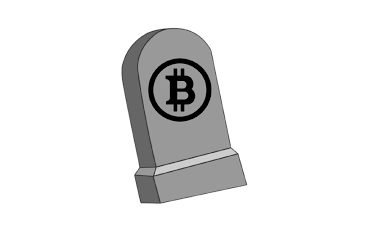Every shuttered mine in the world still has ore. Mines don't close when they run out of ore, they close when they run out of profitable ore.
And Bitcoin is out of profitable ore. I predicted a miner-based crash about a year ago. But like Wile E. Coyote, the Bitcoin network doesn't realize yet that it's run off the cliff. Let's do a systemic analysis of an average miner.
Assumptions:
1 million miners
240K transactions per day
$175 electricity cost per transaction
1.9 million bitcoins left unmined
100 years of mining left due to halving algo
240K transactions at $175 each / 1 million miners = electricity cost of $42 /day ($15K/year) per miner.
1.9 million coins / 1 million miners = 1.9 bitcoins per miner
$15K per year x 100 years = $1.5 million mining cost
to recover
1.9 bitcoins @ $20K each = $38K.
Heck, assume the remaining coins are mined at the current rate of 330K per year. 1.9 million / 330K = 5.75 years. So the cost to mine your 1.9 coins is $15K / year for 5.75 years = $86K to earn $38K.
So from a systemic view, Bitcoin has a huge monetary deficit. It was probably marginal at a price of $60K as the transaction cost grows exponentially by user count, it's an N x (N-1) function.
Calculation by average miner factors out minor (yuk yuk) issues like different electricity rates, etc. Right now, a rational actor would liquidate their mining hardware because there's gonna be a market glut soon. And as each rational miner quits, systemic costs are shifted onto remaining miners, raising their costs.
If 50% of miners quit, the remainder will spend $3.8 million to recover $76K, at best. It's a variation of "tragedy of the commons", a cascading failure waiting to happen and the last guy at the party gets the bill. My prediction is still that the Bitcoin community will eventually raise the 21 million coin limit to attempt a reboot.


Comments